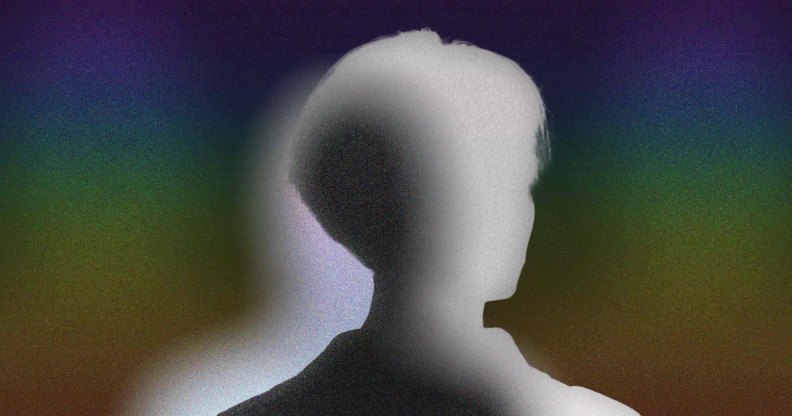LGB adults at higher risk of suicidal thoughts and self-harm, study finds

A new study has found lesbian, gay and bi people have a higher risk of poor mental health than straight people. (Credit: PinkNews)
A harrowing new mental health study has found that lesbian, gay, and bisexual (LGB) people are more than twice as likely as straight people to experience suicidal thoughts or self-harm.
The study, led by University College London (UCL) researchers and published in the international Social Psychiatry and Psychiatric Epidemiology journal, surveyed 10,443 people aged 16 and over in England and found an increased likelihood of suicidal thoughts among lesbian and gay adults compared to straight adults, as well as increased likelihood of self-harm among LGB adults.
The survey also found that depression, anxiety and experiences of discrimination or bullying could contribute in part to these increased risks, with one in five lesbian or gay adults reporting that they had experienced homophobic discrimination within the past year.
The researchers found that – even after accounting for the increased risk of depression and anxiety – lesbian and gay adults were still more than twice as likely than straight adults to report having felt suicidal in the past year.
The results, which analysed data from over a seven-year period, did not improve over the course of the study.
UCL’s findings echo similar studies from the US, which have also documented an increased risk of suicidal thoughts within the LGBTQ+ community.
‘There is clearly a long way to go’
Lead author of the study, Dr Alexandra Pitman of UCL, said: “While national surveys of British attitudes towards same-sex relationships suggest that society has become more tolerant of people who are gay, lesbian or bisexual, there is clearly a long way to go, as the mental health outcomes we were studying did not improve across our study period.
“People with sexual minority identities continue to face more discrimination and bullying than heterosexual people and are also more likely to experience common mental health problems such as depression and anxiety.”
First author, Garrett Kidd, added: “Health services need to be improved to meet the needs of LGBTQ+ people, as some people may not feel comfortable disclosing their sexual orientation, which can hamper an understanding of their health and social needs.
“We also need to offer more mental health services specifically catered to LGBTQ+ people, ideally alongside community-based support.”
The study focussed on sexual orientation, with researchers stating that the next survey will include questions on gender identity.
A previous study by LGBTQ+ mental health charity The Trevor Project found that more than half of trans and non-binary youth have considered suicide in the past year.
Carrie Davis, chief community officer at The Trevor Project, explained that a “record wave of anti-LGBTQ+ bills” in America had led to reduced support for trans and non-binary youth, and that poor mental health could be down to how LGBTQ+ people are “mistreated in society at large”.
“We hope that fellow researchers, lawmakers, youth-serving professionals and allies in every state will use this data to uplift LGBTQ young people and advocate for policies that celebrate and support them – not isolate them further,” Davis said.
Suicide is preventable. Readers who are affected by the issues raised in this story are encouraged to contact Samaritans on 116 123 (www.samaritans.org), or Mind on 0300 123 3393 (www.mind.org.uk). Readers in the US are encouraged to contact theNational Suicide Prevention Line on 1-800-273-8255.
Readers affected by the issues raised in this story are encouraged to contact Samaritans free on 116 123 (www.samaritans.org) or Mind on 0300 123 3393 (www.mind.org.uk). Readers in the US are encouraged to contact the National Suicide Prevention Line on 1-800-273-8255.
How did this story make you feel?

